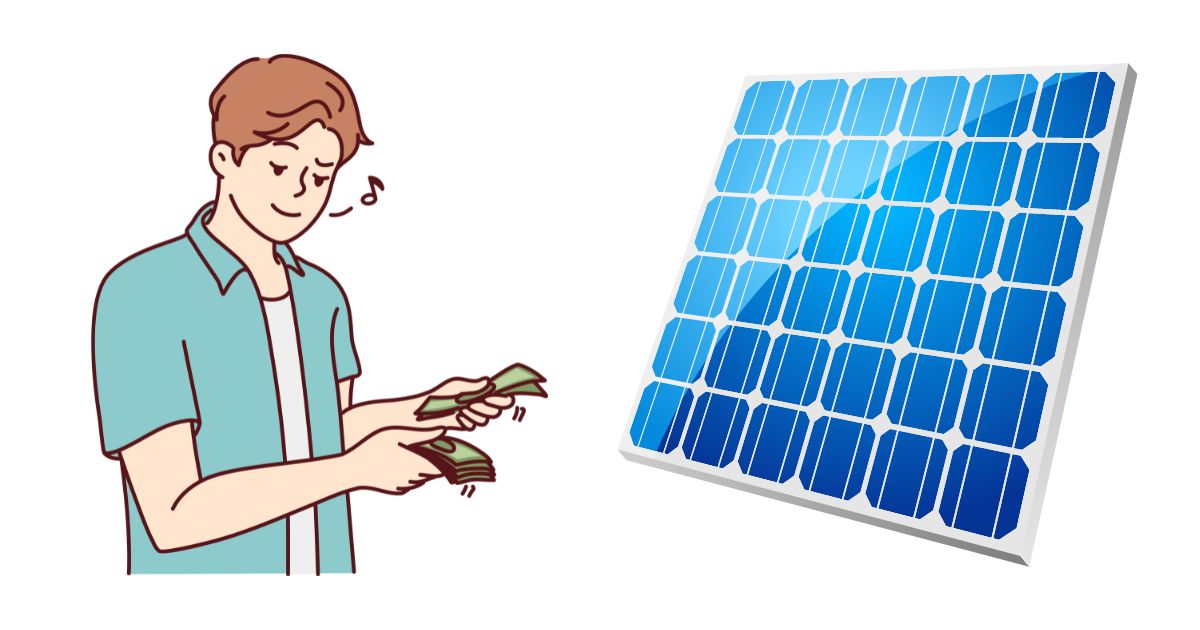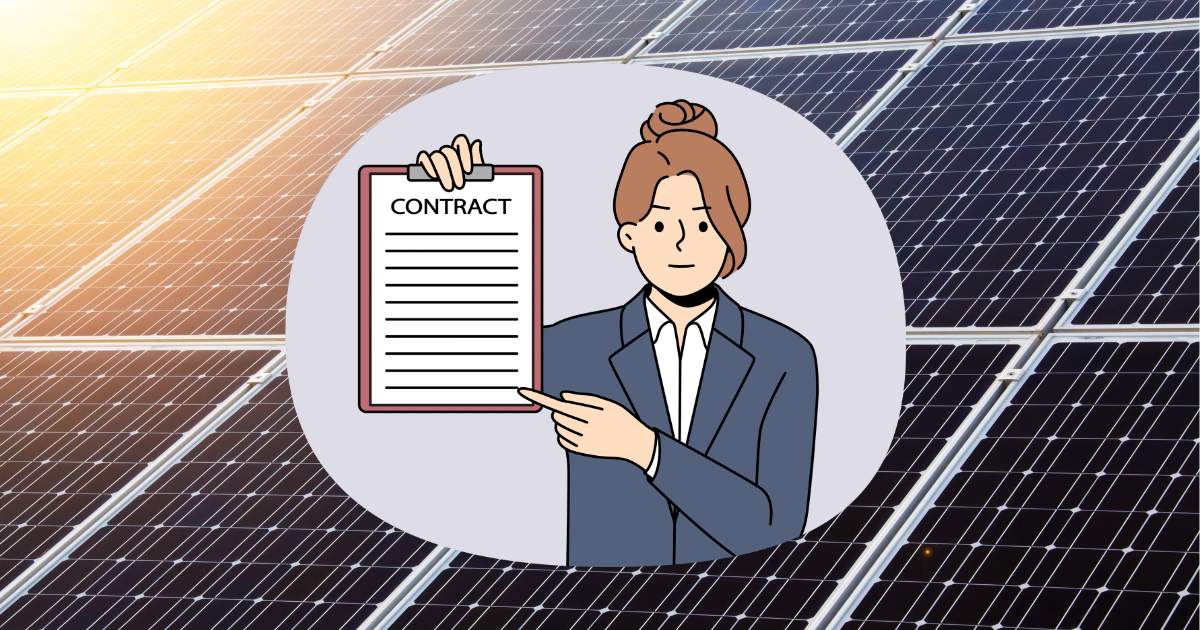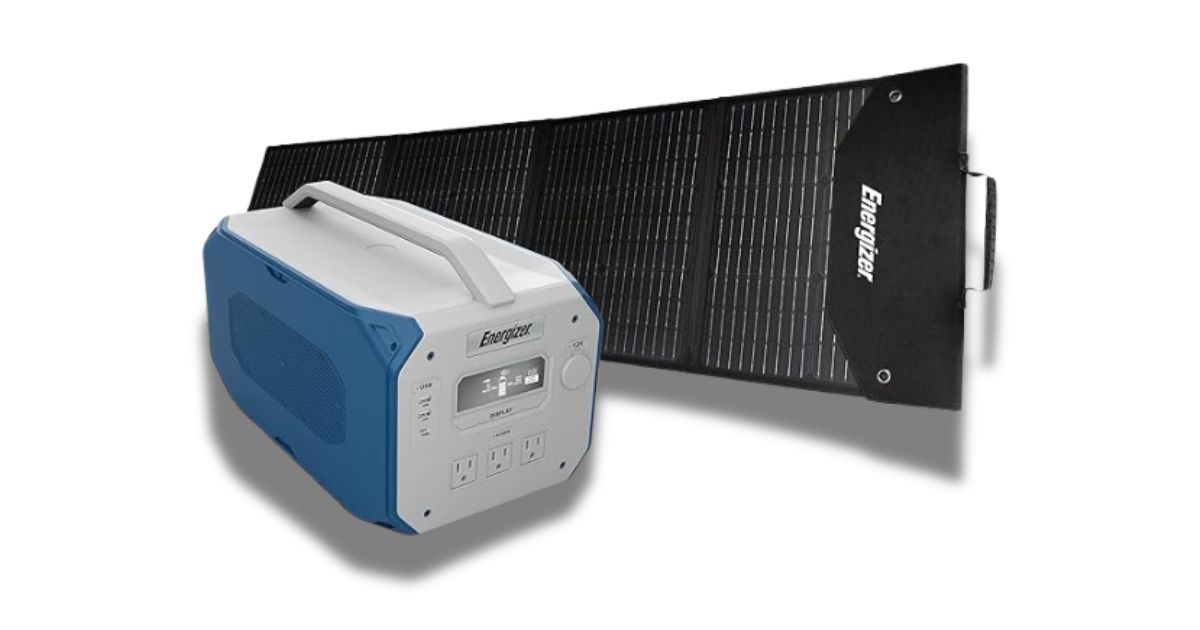Solar panels are valuable to most homeowners because they can save thousands of dollars in energy over their lifetime and also generate clean, renewable energy for the home. Exact solar panels cost savings depend on factors such as power consumption and the size of the solar power system.
Also, financial income and lower monthly utility bills are major incentives to go solar. Considering the potential cost savings and benefits of residential solar power, it’s worth exploring solar panel options if you have high utility bills, get lots of sunshine, and qualify for tax breaks or other savings.
Ultimately, the savings with a solar panel system equals the amount you paid for the installation minus the amount you would have paid for utility electricity.

How Solar Panels Work
Solar panels have become a popular option for homeowners looking to save money on their electricity bills and reduce their carbon footprint. But, how do solar panels work? Understanding the science behind solar energy can help you make an informed decision about whether solar panels are right for you.
Photovoltaic Cells
At the center of each solar panel are photovoltaic cells, also known as PV cells. These small cells are made of semiconductor materials like silicon and work to convert the sun’s energy into electricity. When sunlight hits a PV cell, it excites and moves electrons within the cell, creating a flow of electricity. Multiple PV cells are connected to a solar panel to produce a larger flow of electricity.
There are two types of PV cells: monocrystalline and polycrystalline. Monocrystalline cells are made from a single crystal of silicon and are more efficient at converting sunlight into electricity. Polycrystalline cells are made from multiple crystals of silicon and are less expensive to manufacture, but less efficient than monocrystalline cells.
Conversion Of Sunlight Into Electricity
Once sunlight is converted into electricity by PV cells, it must be converted into electricity that can be used in your home. This is where the inverter comes in. Inverters convert direct current (DC) electricity produced by solar panels into alternating current (AC) electricity, the type of electricity used in homes and businesses.
Once solar panels are installed and connected to your home’s electrical system, any excess electricity produced by the panels can be fed back into the grid and used by other homes and businesses. This excess energy can be credited to your account and used to offset any electricity costs you incur from the grid if your solar panels are not producing enough electricity to meet your needs.
Overall, solar panels can provide significant cost savings over time by reducing your reliance on grid electricity and potentially earning credits for any additional energy produced. Understanding how solar panels work can help you make an informed decision about whether solar panels are right for your home.

Factors Affecting Solar Panels Cost Savings
When considering solar panels, understanding the factors that affect cost is crucial. Several factors affect the cost of solar panels, including the type of solar panel, installation cost, and system size. By studying these factors, you can make an informed decision about investing in solar energy for your home or business.
Type Of Solar Panel
The type of solar panel is an important factor in determining the overall cost of a solar power system. Different types of solar panels are available in the market, such as monochromatic, polycrystalline, and thin-film solar panels. Each type has its own characteristics and efficiency levels, which directly affect the cost. Here are some key points to consider:
- Monocrystalline panels are known for their high efficiency but come with a high price tag.
- Polycrystalline panels are more affordable but have slightly lower efficiency than monocrystalline panels.
- Thin-film solar panels are the most cost-effective option, but they require more installation space due to lower efficiency.
Installation Costs
Installation costs include various costs associated with setting up a solar panel system. These costs may include labor, mounting equipment, permits, and any necessary electrical upgrades. Factors that can affect installation costs include:
- Installation complexity, such as roof type and shade, can affect labor costs.
- Structural modification or reinforcement is required to support the solar panels.
- Property location and accessibility can affect transportation and logistics costs for installation crews and equipment.
Size Of The System
System size refers to the capacity and number of solar panels required to meet the property’s energy needs. System size is determined by factors such as:
- The property’s energy consumption patterns and electricity usage, determine the size of the solar array required.
- Available roof or ground space to install solar panels, as larger systems require more space.
- Desired level of energy independence and self-sufficiency, which may influence the decision to install a large system with battery storage.

Financial Incentives For Solar Panels
Solar panels are not only a sustainable energy solution but also a smart financial investment. One of the main reasons why solar panels are becoming increasingly popular is the financial incentives they offer. These incentives help offset the initial cost of installation and make solar energy more accessible to homeowners. In this blog post, we’ll explore the various financial incentives available for solar panels, including government rebates, tax credits, and net metering.
Government Rebates
Many governments around the world offer rebates and incentives to encourage solar energy adoption. These rebates can significantly reduce the upfront cost of installing solar panels, making it more affordable for homeowners. Here are some key points about government rebates:
- Government rebates vary from country to country and even between regions.
- Rebates are often based on the size of the solar system installed.
- Some governments offer rebates based on the energy output of solar panels, encouraging homeowners to generate more renewable energy.
Tax Credits
In addition to government rebates, homeowners can take advantage of tax credits when installing solar panels. These tax credits allow homeowners to deduct a portion of the cost of solar systems from their income taxes. Here are some key points about tax credits:
- Tax credits are available in many countries, including the United States.
- The percentage of expenses that can be claimed as a tax credit varies from country to country.
- The tax credit can be claimed in the year of installation or spread over multiple years.
Net Metering
Net metering is a billing system that allows homeowners to sell excess solar power to the grid. Under this system, homeowners receive credit on their electricity bills for the excess energy they generate. Here are some key points about net metering:
- Net metering allows homeowners to offset their electricity costs by generating their own clean energy.
- Excess energy generated during the day can be used to power the home at night, further reducing reliance on the grid.
- Net metering policies vary by utility company and region, so homeowners should check with their local utility for specific details.
By taking advantage of government rebates, tax credits, and net metering, homeowners can significantly reduce the cost of installing solar panels. These financial incentives, combined with long-term savings on electricity bills, make solar panels a smart investment for both the environment and the wallet.

Long-term Savings With Solar Panels
When considering the long-term savings associated with solar panels, the numerous financial benefits they bring over time cannot be overlooked. From reduced electricity bills to significant returns on investment and even increased property values, solar panels offer a compelling proposition for homeowners looking to save money in the long term.
Reduced Electricity Bills
Installing solar panels can significantly reduce electricity bills over the years. By harnessing the sun’s energy to generate electricity, homeowners can significantly reduce their reliance on traditional grid power, resulting in long-term cost savings.
Return On Investment
Investing in solar panels not only helps reduce monthly costs but also provides a solid return on investment. With the declining cost of solar technology and various financial incentives available, homeowners can recoup their initial investment and start saving money in the long run.
Increased Property Value
In addition to the direct financial benefits, solar panels can increase the value of a property. Homes equipped with solar panels are often considered more desirable in the real estate market, leading to increased property values. This not only translates into higher resale value but also attracts eco-conscious buyers.
Cost Comparison: Solar Panels Vs. Traditional Energy Sources
When it comes to renewable energy sources, solar panels are a popular and viable option for homeowners Not only do they reduce reliance on traditional energy sources, but they can also save homeowners money on their energy bills. In this article, we will explore the cost savings associated with solar panels, with a particular focus on cost comparisons between solar panels and traditional energy sources.
Initial Investment
The initial investment required for solar panels can vary depending on several factors, including the size of the system, the quality of the panels, and the location of the home. However, despite this initial investment, solar panels can provide significant cost savings in the long run. Here are some things to consider when evaluating the initial investment:
- System size: Generally, the larger the system, the more expensive the initial investment. However, larger systems can save more energy over time.
- Quality of panels: Higher quality panels may come with a higher initial price tag, but they can provide more efficient energy production and a longer lifespan, resulting in greater cost savings over time.
Home Location: The amount of sunlight a home receives can affect the performance of solar panels. Homes in sunny locations may need a smaller system to produce the same amount of energy as a larger system in a less sunny location.
Operating Costs
Although the initial investment in solar panels can be significant, the operating costs associated with solar panels are generally much lower than traditional energy sources. Here are some things to consider when evaluating operating costs:
- Maintenance cost: Solar panels generally require very little maintenance. Regular cleaning and occasional inspections are usually required.
- Energy savings: Solar panels can significantly reduce or eliminate energy bills for homeowners, resulting in long-term cost savings.
- Incentives and rebates: Many state and local governments offer incentives and rebates to homeowners who install solar panels. These can significantly reduce the overall cost of the system.
Environmental Impact
In addition to solar panels cost savings, solar panels have a positive environmental impact. Unlike traditional energy sources, solar panels do not produce greenhouse gas emissions or other pollutants. Here are some things to consider when doing an environmental impact assessment:
- Reduced dependence on fossil fuels: Solar panels reduce the need for traditional energy sources, which are often derived from fossil fuels.
- Reduced Greenhouse Gas Emissions: Solar panels do not produce greenhouse gas emissions, which are a major contributor to climate change.
- Pollution reduction: Traditional energy sources can produce pollutants such as sulfur dioxide, nitrogen oxides, and particulate matter. Solar panels do not produce these pollutants.
while the initial investment in solar panels can be significant, the long-term cost savings and environmental benefits make it a worthwhile investment for homeowners. By reducing reliance on traditional energy sources and producing clean, renewable energy, solar panels can save homeowners money on their energy bills and help protect the environment for future generations.

Tips For Maximizing Solar Panel Cost Savings
Solar panels can offer significant cost savings and long-term benefits for homeowners and businesses. To maximize these savings, it is important to consider various factors such as system size, energy consumption, and regular maintenance. By implementing the following tips, you can make the most of your solar panel investment and reap financial rewards in the form of reduced electricity bills and overall energy savings.
Choosing The Right System Size
When it comes to choosing the right solar panel system size, it’s essential to accurately assess your energy needs. A common question among potential adopters is how much solar panels save on electricity bills. By selecting a system size that aligns with your energy consumption, you can optimize your cost savings. Additionally, consider factors such as available roof space, orientation, and shading to maximize system performance. It is important to consult a professional to determine the ideal size for your specific needs. Here are some key points to consider:
- Evaluate your average monthly electricity consumption to estimate the appropriate system size.
- Consider future energy needs when sizing your system, such as potential electric vehicle charging or home expansion.
- Explore available financing options and incentives that may influence your decision on system size.
Optimizing Energy Usage
The cost of solar panels is an important consideration for potential buyers, and optimizing energy use can further increase the cost-saving benefits of solar panels. By implementing energy-efficient practices and technologies, you can maximize your use of solar energy and reduce your reliance on the grid. Here are some strategies to optimize energy use:
- Install energy-efficient appliances and lighting to reduce overall electricity consumption.
- Implement smart energy management systems to effectively monitor and control energy consumption.
- Consider incorporating battery storage solutions to store excess solar energy for later use, further reducing reliance on the grid.
Regular Maintenance
Regular maintenance is essential to ensure optimal performance and longevity of your solar panel system. Proper maintenance not only protects your investment but also contributes to sustainable cost savings over the lifetime of the system. It is important to schedule routine inspections and maintenance checks to identify and resolve any problems immediately. Here are some maintenance practices to consider:
- Keep solar panels clean and free of debris to absorb maximum sunlight.
- Monitor system performance regularly and address any deviations immediately.
- Hire professional maintenance services to conduct thorough inspections and maintenance as per the manufacturer’s recommendations.
Frequently Asked Questions
Do You Actually Save Money Going Solar?
Yes, solar panels can save you money. They provide energy savings over time and generate clean, renewable power for your home.
Are Solar Panels Really Worth The Expense?
Solar panels are worth the expense for most homeowners, providing thousands in energy savings and clean energy generation.
Do Solar Panels Reduce Costs?
Yes, solar panels can reduce costs by providing financial returns and lower monthly utility bills for homeowners.
How Much Is A Solar System For A 2000 Sq Ft House?
A solar system for a 2000 sq ft house costs around $15,000 to $30,000, depending on the size and specifications.
Conclusion
Solar panels are definitely worth the expense for most homeowners. Over the lifespan of your panels, you can expect to see thousands of dollars in energy savings. Not only that, but you’ll also be generating clean, renewable energy for your home.
Financial returns and lower monthly utility bills are major incentives for going solar. The exact savings you’ll experience will depend on your electricity consumption and the size of your solar energy system. With all the benefits and potential savings, it’s clear that solar panels are a smart investment for homeowners.


